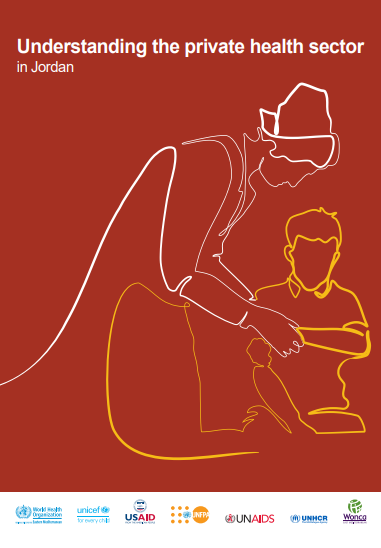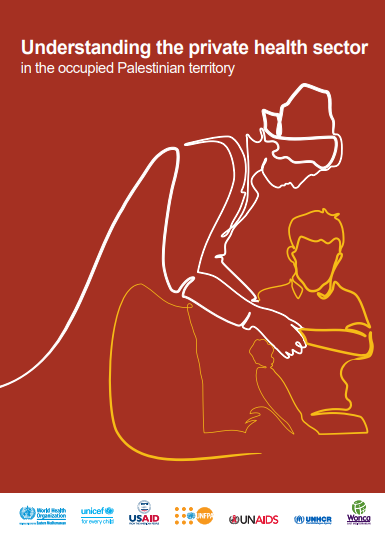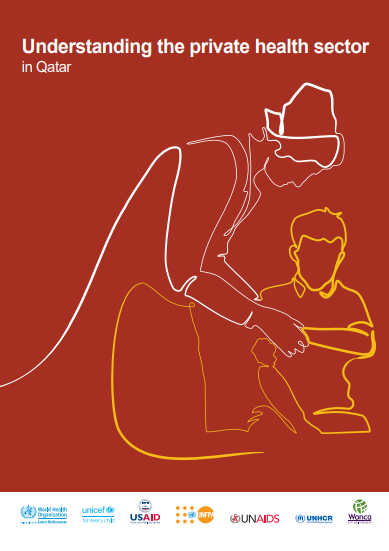Country reports
الحملات والمبادرات
أعطى قرار جمعية الصحة العالمية المعنون "العمل العالمي بشأن سلامة المرضى" (ج ص ع 72-6) الأولوية لسلامة المرضى بوصفها خطوة أساسية في بناء جميع نظم الرعاية الصحية وتصميمها وتشغيلها وتقييم أدائها. وكان اعتماد هذا القرار علامةً فارقةً في الجهود العالمية الرامية إلى اتخاذ إجراءات متضافرة بشأن سلامة المرضى والحد من عبء الضرر الواقع على المرضى بسبب الرعاية الصحية غير المأمونة.
وأطلقت المنظمة مبادرة رائدة بشأن عقد لسلامة المرضى 2020-2030 في شباط/فبراير 2020. وتُحدِّد هذه الخطوة المهمة مساهمة منظمة الصحة العالمية في الحركة العالمية لسلامة المرضى. ومن خلال مراحلها الرئيسية عامًا بعد عام، ستكون هذه المبادرة القوة الدافعة للتنفيذ الناجح لخطة العمل العالمية لسلامة المرضى 2021-2030.
يبذل الكثير من البلدان جهودًا من أجل تحسين جودة الرعاية وإضفاء الطابع المؤسسي على ثقافة الجودة في جميع أنظمة الصحة بها. ويمكن تعزيز هذه الجهود من خلال وضع سياسة واستراتيجية وطنية للجودة لدعم البلدان في وضع خطط التحسين والتوجُّه الوطني المتميز بشأن الجودة في أداء النُظُم الصحية. ويمكن للدول الأعضاء، بدعم من المنظمة، أن تنطلق في عملية وضع سياسة واستراتيجية وطنية للجودة وإضفاء الطابع المؤسسي عليهما من أجل التصدي للتدخلات الجيدة وتعزيز أداء النظام الصحي.
وتتمثل السياسة والاستراتيجية الوطنية للجودة في الجهود المنظمة التي يبذلها البلد لتعزيز جودة الرعاية والتخطيط لها. وغالبًا ما ترد الخطوط العريضة لتلك السياسة والاستراتيجية الوطنية في وثيقة تقدم بيانًا رسميًا وصريحًا بالنَهج والإجراءات اللازمة لتعزيز جودة الرعاية الصحية على نطاق النظام الصحي في أي بلد، ويلزم ربطها ربطًا وثيقًا بالسياسات الصحية وعملية التخطيط الوطنية الأوسع نطاقًا. وتضطلع وزارة الصحة عادةً بمسؤولية إعداد هذه الوثائق، وتعمل في تعاون وثيق مع طائفة من راسمي السياسات وغيرهم من الأطراف المعنية.
وقد أبرزت تجارب البلدان التي لديها سياسات واستراتيجيات وطنية للجودة فوائد وجود خطة واحدة متماسكة تقدّم الإرشاد والتوجيه بشأن الجودة على جميع مستويات النظام. غير أن السياسات المتعلقة بالجودة توجد في سياق ترتيبات الحوكمة الوطنية الأوسع نطاقًا. ويمكن أن تساعد السياسات والاستراتيجيات الوطنية الجيدة على توضيح الروابط مع السياسات والخطط والأولويات الصحية - وغير الصحية - الوطنية، ويمكن أن تساعد أيضًا على تسليط الضوء على أهمية العمليات التي تركز على الجودة في تحقيق الأولويات الصحية العامة، وتحديد خطوط المساءلة من أجل العمل نحو خدمات صحية أكثر تركيزًا على الناس.
وتشمل العناصر الثمانية لوضع سياسة واستراتيجية وطنية للجودة ما يلي:
تحديد الأهداف والأولويات الصحية الوطنية؛
تعريف الجودة على الصعيد المحلي؛
تحديد الجهات المعنية وإشراكها؛
إجراء تحليل للوضع الراهن للوقوف على حالة الجودة؛
تعزيز الحوكمة والهيكل التنظيمي للجودة؛
تخطيط أساليب وتدخلات تحسين الصحة؛
استخدام نُظُم معلومات إدارة شؤون الصحة ونُظُم البيانات؛
وضع مؤشرات للجودة ومقاييس أساسية.
دليل السياسة والاستراتيجية الوطنية للجودة؛ نهج عملي لوضع سياسة واستراتيجية لتحسين جودة الرعاية.
مجمل مجموعة أدوات السياسة والاستراتيجية الوطنية للجودة والموارد.
https://apps.who.int/iris/rest/bitstreams/1261454/retrieve
خطة العمل العالمية لسلامة المرضى 2021-2030
تهدف خطة العمل العالمية بشأن سلامة المرضى إلى تقديم إطار عملي المنحى إلى الدول الأعضاء والأطراف المعنية الأخرى لتيسير تنفيذ التدخلات الاستراتيجية بشأن سلامة المرضى على جميع مستويات النظام الصحي على الصعيد العالمي على مدى السنوات العشر المقبلة (2021-2030). وتعكس المبادئ التوجيهية الجوهر الحقيقي للسلامة التي تستند إلى العلم وتركز على الناس. وهناك 7 أهداف استراتيجية تقدّم إطارًا عمليًا للعمل يمكن إدماجه بسهولة في تخطيط الرعاية الصحية وتقديمها.
خطة العمل العالمية لسلامة المرضى 2021-2030
التحديات العالمية لسلامة المرضى
وتُعد التحديات العالمية المتعلقة بسلامة المرضى مبادرات أساسية يتخذها التحالف العالمي لسلامة المرضى، وتعالج جوانب كبيرة من المخاطر التي يتعرض لها المرضى الذين يتلقون الرعاية الصحية. وهي دعوة عالمية للعمل موجهة إلى العاملين الصحيين ووزارات الصحة والقادة والمرضى. وقد أصدرت منظمة الصحة العالمية حتى الآن 3 تحديات عالمية تتعلق بسلامة المرضى.
وقد أُطلِق التحدِّي العالمي الأول لسلامة المرضى لمنظمة الصحة العالمية في عام 2005، وعنوانه "الرعاية النظيفة رعاية أكثر مأمونية"، بهدف تعزيز التزام الدول الأعضاء بالحدّ من العدوى المرتبطة بالرعاية الصحية في جميع أرجاء العالم. وتتمثل أهداف التحدي العالمي الأول في إذكاء الوعي بشأن حالات العدوى المرتبطة بالرعاية الصحية، والحصول على التزام قُطري بالحد من هذه الحالات من العدوى. وتتمثل مجالات العمل الرئيسية للحدّ من حالات العدوى المرتبطة بالرعاية الصحية في تعزيز نظافة الأيدي، ومأمونية الدم، وممارسات الحَقن والتمنيع، والمياه والإصحاح، وإدارة النفايات، فضلًا عن تعزيز سلامة الإجراءات السريرية.
https://www.who.int/gpsc/background/en/
https://www.who.int/gpsc/clean_care_is_safer_care/en/
وأُطلِق التحدي العالمي الثاني لسلامة المرضى لمنظمة الصحة العالمية بعنوان "الجراحة المأمونة تنقذ الأرواح" في عام 2008. ودائمًا ما كانت الرعاية الجراحية تُشكّل عنصرًا أساسيًا من عناصر الرعاية الصحية في جميع أنحاء العالم لأكثر من قرن من الزمان. ومع استمرار تزايد الإصابات الرضحية وأنواع السرطان وأمراض القلب والأوعية الدموية، سيستمر تأثير التدخل الجراحي على نُظُم الصحة العامة في الازدياد.
https://www.who.int/patientsafety/topics/safe-surgery/en/
التحدي العالمي الثاني لسلامة المرضى: الجراحة المأمونة تنقذ الأرواح
وأُطلِق التحدي العالمي الثالث لسلامة المرضى لمنظمة الصحة العالمية بعنوان "الدواء دون ضرر" في عام 2017. فممارسات المداواة غير المأمونة وأخطاء المداواة تُعدُّ سببًا رئيسيًا للإصابة والأذى الذي يمكن تجنبه في نُظُم الرعاية الصحية في جميع أنحاء العالم. وقد وُضِعت بالفعل تدخلات متعددة لمعالجة تواتر الأخطاء الدوائية وتأثيرها، ولكن يتباين تنفيذها. ولا بد من حشد الأطراف المعنية على نطاق واسع لدعم اتخاذ إجراءات مستدامة. ويهدف تحدي "دواء دون ضرر" إلى الحد من الضرر الشديد المرتبط بالعلاج الدوائي والذي يمكن تجنبه بنسبة 50%، على مستوى العالم في السنوات الخمس المقبلة.
https://www.who.int/patientsafety/medication-safety/en/
دليل المنظمة المتعدد المهن للمنهج الدراسي لسلامة المرضى
أعدَّت منظمة الصحة العالمية هذا المنهج الذي أُطلِق في عام 2011 لتلبية الطلب على اتباع نهج مُنَسَّق ومتكامل في التثقيف بشأن سلامة المرضى.
وفي عام 2010، أُطلِق دليل المنهج الدراسي لسلامة المرضى في عُمان، حيث حضره ممثلون من 19 بلدًا من بلدان الإقليم. وتولّت الجامعات والمدارس تنفيذ المنهج الدراسي وتقييمه في 12-14 بلدًا في جميع أنحاء العالم. وشاركت جامعة القاهرة (مصر) وجامعة الأردن للعلوم والتكنولوجيا (الأردن) في تنفيذه.
http://www.who.int/patientsafety/education/curriculum/Curriculum_Tools/en/
دليل المنهج الدراسي لسلامة المرضى: نسخة متعددة المهن
توثيق حجم الأحداث الضارة ونطاقها
يعكف المكتب الإقليمي لمنظمة الصحة العالمية على تعزيز الجهود الرامية إلى دعم البلدان في إجراء دراسات تقييم حول الأحداث الضارة، والتبليغ المنتظم بالبيانات، وجمع البيانات حول الأحداث الضارة، وإنشاء نُظُم إبلاغ موثوقة، وتشجيع تعاون المستشفيات مع المنظمات المعنية بسلامة المرضى.
كما أن إعداد حوافز محددة قد يحمل المستشفيات مسؤولية أكبر في الإبلاغ عن الأحداث الضارة والحد من وقوعها. وعلاوة على ذلك، يتيح توثيق الأحداث الضارة أيضًا الفرصة لتقييم أثر الاستراتيجيات والتدخلات المنفذة على الصعيد الوطني.
Regional WHO collaborating centres on quality and safety
WHO Collaborating Centre for Quality and Patient Safety Training, Muscat, Oman
The WHO Collaborating Centre for Quality and Patient Safety Training in Muscat, Oman was designated in August 2018. The centre focuses mainly on patient safety and health system research and development. The centre’s activities include hosting the global resource for best practices in patient safety and quality care with WHO's leadership to identify scalable solutions and systems leverages for improving patient safety and quality of care in the Region. It also provides education and training on core competencies of patient safety, in collaboration with WHO and other public/non-profit institutions, advocates for the integration of safety and quality goals in health policies and strategies, within the perspective of systems governance, advocates for integration of patients' safety teaching (e.g. WHO patients' safety curriculum guide) within the curriculum of academic health institutions in collaboration with WHO and its collaborating centres on quality and patient safety while promoting research on patient safety and quality.
WHO Collaborating Centre on Patient Safety Policies and Strategies, Saudi Arabia
The WHO Collaborating Centre on Patient Safety Policies and Strategies in Saudi Arabia was designated in March 2020. It focuses mainly on patient safety. The Saudi Patient Safety Centre aims to support the implementation of the WHO global patient safety challenges with primary focus on medication without harm, through capacity-building in low- and middle-income countries. At the request of WHO and its Member States, it helps develop electronic tools to assess, measure and improve the patient safety culture. The Saudi Patient Safety Centre also supports WHO’s patient safety priorities through capacity-building on the role of health professionals in promoting safer care and WHO programmes that aim at promoting patient empowerment and community engagement for ensuring safer care, through the collection of lessons learned from patient safety initiatives.





















